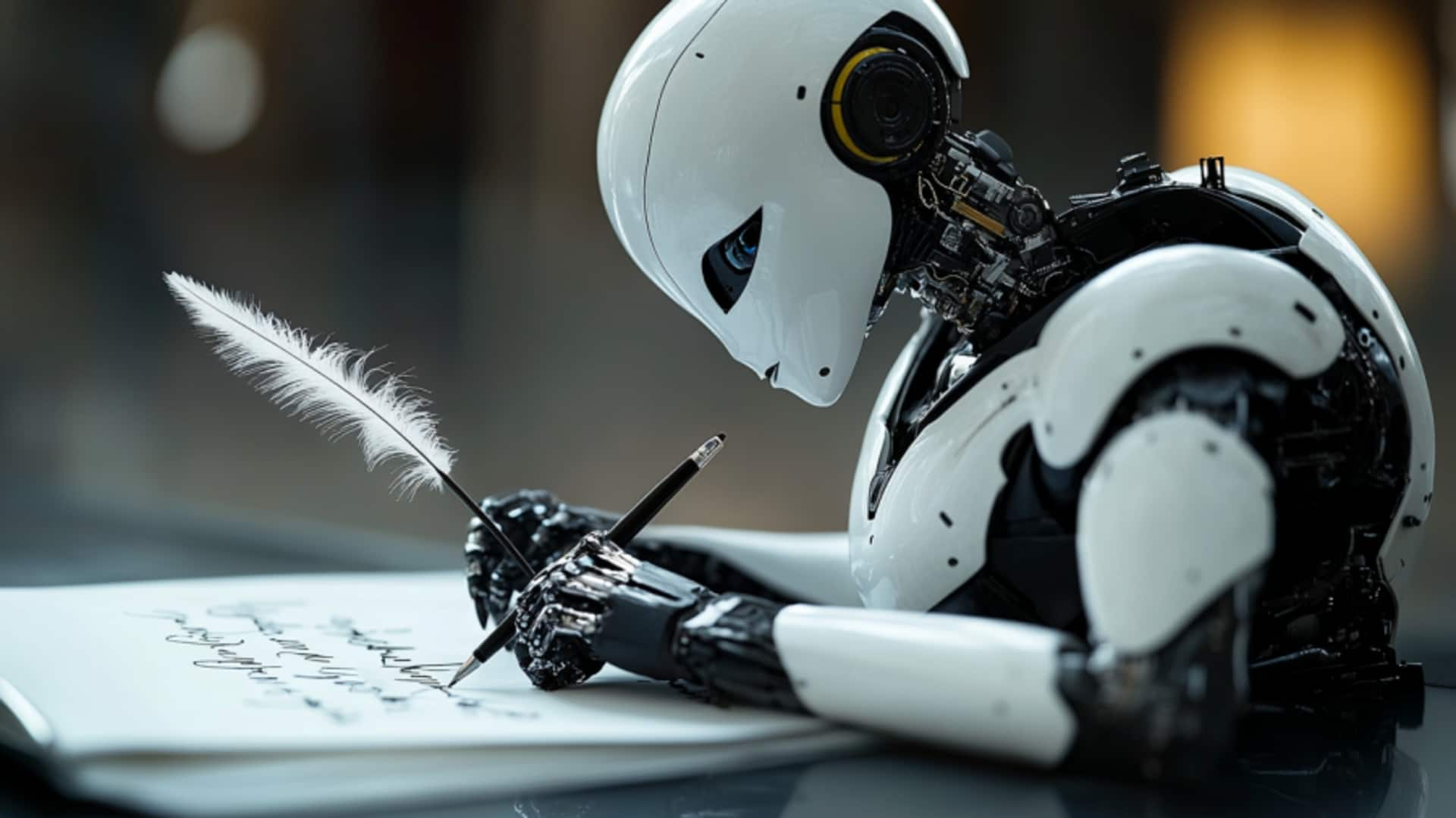
Study shows people can't distinguish between human and AI-generated poetry
What's the story
A recent study by philosophers of science, Brian Porter and Edouard Machery, has found that artificial intelligence (AI)-generated poetry is now almost indistinguishable from those written by humans. The study included 10 poets from Geoffrey Chaucer to Dorothea Lasky. Surprisingly, AI chatbots were able to replicate their styles successfully. The study included 696 participants who slightly preferred the AI-created verses over the originals.
Surprising results
AI's poetic prowess surpasses human expectations
The study concluded that "the capabilities of generative AI models have outpaced people's expectations of AI." However, Porter and Machery clarified that this doesn't necessarily mean AI can replace human poets. They stressed that such a conclusion would require more extensive testing. The researchers' aim was to cover a broad spectrum of poetic styles, primarily from poets of bygone eras.
Quality comparison
Outperforming human poets in qualitative dimensions
Along with overall quality, participants rated poems on other qualitative aspects like imagery, rhythm, sound, or beauty. They were also asked how "inspiring," "lyrical," "meaningful," "moving," "original," "profound," and "witty" they found the poems. Surprisingly, AI-generated poetry beat human-created works in almost every category. However, it's worth noting that most study participants said they had little experience with poetry.
Simplification strategy
Simplifying complex poetic elements for broader appeal
The study suggested that AI's strategy is to simplify complex poetic elements like ambiguity, wordplay, and linguistic complexity. This makes the poetry more appealing to those with little interest or experience in the art form. However, this doesn't necessarily indicate a decline in human poets' relevance. The enduring respect for poets like Byron and Walt Whitman is due to their works' ability to reward extended attention rather than cursory reading.